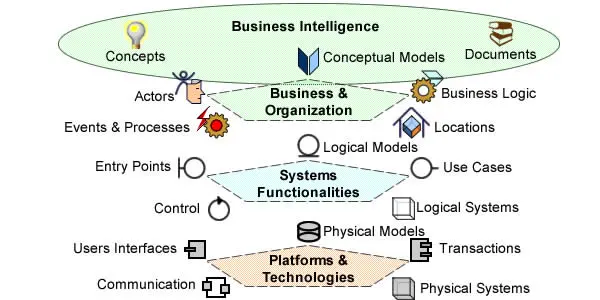Community-driven ontologies are reshaping our knowledge sharing and knowledge These shared vocabularies help humans and computers make sense of information in the same way. When many people are collaborating on ontologies they can produce better tools for organizing ideas.
The community-driven ontologies help groups share and collaborate on knowledge. They enable teams to have a common language around complex subjects. That is beneficial in areas such as science, health and technology. The ontologies become more complete and more useful as more domain experts contribute.
These kinds of collaborative tools are gaining traction. They let users make additions and revisions to existing terms. This ensures the ontologies are current and real-world relevant. Community-driven ontologies will take a larger role in how the growing number of groups organize and share information online.
Building the Foundations: Understanding Ontologies
Ontologies form the backbone of effective knowledge sharing and management. They provide a structured way to represent information and relationships within a domain. Let’s explore what ontologies are and how they’re used.

Exploring the Nature of Ontologies
An ontology is a formal way to describe concepts and relationships in a specific field. It’s like a detailed map of knowledge. Ontologies use a common vocabulary that helps people and computers understand each other better.
They include:
- Classes (types of things)
- Properties (features, attributes)
- Relationships between classes
For example, a biology ontology might have:
- Classes: cells, proteins, genes
- Properties: size, function, location
- Relationships: “is part of”, “interacts with”
Ontologies make it easier to organize and find information. They help connect different pieces of data in meaningful ways.
How Ontologies Support Knowledge Management
Ontologies help a great deal in knowledge management. They allow people to develop a common view of a topic. That is so powerful when teams with different backgrounds join together.
Enterprise knowledge management is one of the areas where ontologies have significant value. One of the benefits of ontologies in knowledge management are:
- Better communication between people
- Lower ambiguity in data
- Greater ease of searching
- Ability to integrate data from various sources
In healthcare, for example, ontologies can connect symptoms, diseases, and the treatments related to them. This allows doctors to decide better themselves. It also allows medical knowledge to be spread more easily across hospitals.
Ontologies also enable the semantic web. This is an attempt to render internet data more machine-readable. It enables computers to comprehend the meaning of information, rather than merely the words used.
Technological Advances Facilitating Ontology Development
New tech tools are making it easier to create and use ontologies. These tools help people work together to build knowledge bases. They also make it simpler to visualize complex information.
Some cool new ontology tools include:
- Protégé: An open-source ontology editor
- WebProtégé: A web-based version for team projects
- OWLGrEd: A tool for drawing ontology diagrams
Artificial intelligence is also helping. AI can suggest connections between concepts. It can even help build ontologies automatically from text.
Big data technologies are important too. They help handle the huge amount of information in modern ontologies. This is especially useful in fields like bioinformatics, where there’s tons of data to organize.
Empowering Communities: The Impact of Collaboration
Community-driven ontologies foster knowledge sharing and empower local groups. They bring people together to build shared understanding and solve real-world problems.
Community Participation in Ontology Development
Engagement of communities in ontology building yields richer results.
Everyone has their own perspective and stories. It makes ontologies more useful and relevant. Perhaps the best example is the OBO Foundry. It also combines the expertise of many disciplines. Together they create top-notch ontologies for biological and clinical use.
Terms included are based on what the community decides
They also provide input on definitions. This process makes sure that the ontologies serve actual needs.
Case Studies: Bioinformatics and Global Health
The Gene Ontology demonstrates the potential of community efforts. Scientists globally contribute to it. That’s all in the name of genetic research. Shared vocabularies are important during health crises. In the cases of COVID-19, MERS, and SARS they assisted in tracking the spread. They also helped spur vaccine development.
The Ontology for Biomedical Investigations (OBI) underpins numerous studies. It assists researchers in clearly stating their methods. It facilitates sharing and results comparison.
Standardization Ensures Trust and Reliability
For ontologies to be useful, there need to be common rules. FAIR guiding principles assist with this. They make data fair Findable, Accessible, Interoperable, and Reusable.
Standards increase trust in community-built ontologies. They guarantee quality from one project to another. This is crucial for areas such as bioinformatics.
Good ontologies lead to good science. They make it easier for researchers to work together. This results in quicker discoveries and innovations.
